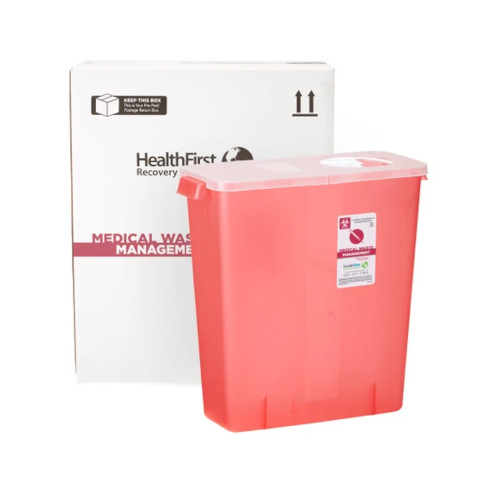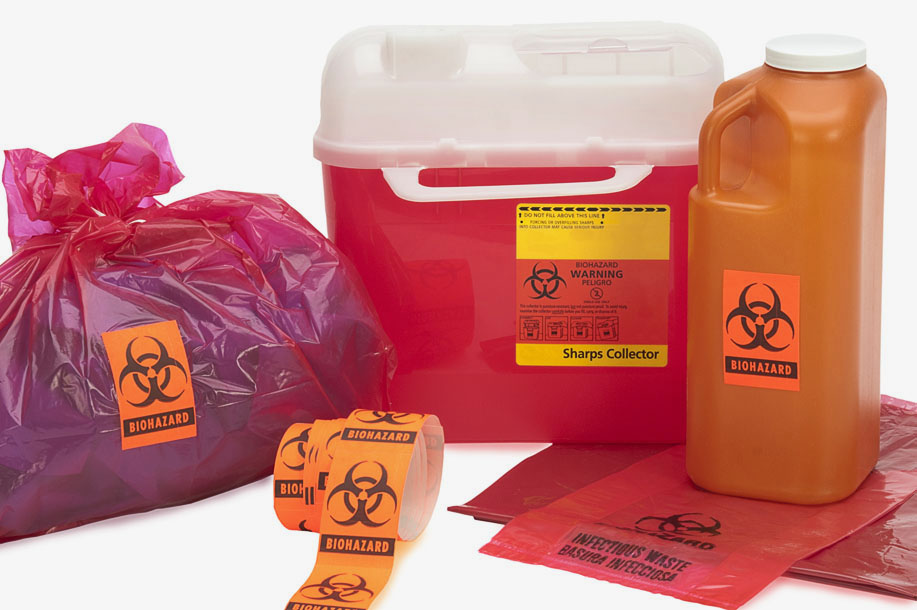Tailored Medical Waste Disposal Services: Custom Solutions for Your Demands
Tailored Medical Waste Disposal Services: Custom Solutions for Your Demands
Blog Article
Navigating Medical Garbage Disposal: Important Solutions for Medical Care Facilities
In the elaborate landscape of health care procedures, the management of medical waste is an essential facet that demands precise interest. Healthcare facilities, whether huge medical facilities or small clinics, are turned over with the obligation of handling, dealing with, and throwing away a vast variety of clinical waste streams. The intricacies associated with navigating through the regulative demands, guaranteeing proper waste partition, and implementing secure collection and transport processes are vital. Comprehending the necessary solutions that sustain medical waste disposal is not simply an issue of conformity however likewise a fundamental part in guarding public wellness and ecological well-being. The details of this procedure are crucial for healthcare centers, and the experience used in this realm plays a critical duty in keeping the honesty of medical care systems.
Regulatory Conformity Support
For health care facilities, ensuring regulative conformity support is important to maintain appropriate handling and disposal of clinical waste. Sticking to regulations established forth by organizations such as the Epa (EPA) and the Occupational Security and Health And Wellness Management (OSHA) is important to avoid ecological contamination, secure public health, and prevent prospective lawful consequences. Regulative conformity assistance provides healthcare centers with guidance on how to appropriately set apart, shop, transport, and dispose of various sorts of medical waste according to regional, state, and federal guidelines. This assistance includes aid in creating and executing thorough waste monitoring strategies, carrying out routine personnel training sessions, and doing audits to make sure recurring conformity. By partnering with regulative compliance experts, health care centers can stay updated on progressing regulations, reduce risks associated with improper waste disposal, and eventually add to a safer and extra lasting setting for all.
Waste Segregation Advice

Medical care centers have to provide clear guidelines and training to staff on how to segregate waste effectively. This includes separating general waste from harmful products such as sharps, transmittable waste, pharmaceuticals, and chemical waste.
Collection and Transportation Services

Correct collection and transport services are important parts of the medical garbage disposal procedure in healthcare centers. These services guarantee that dangerous products are managed safely and in conformity with policies to secure both the environment and public health. Health care facilities rely upon specialized waste monitoring business to offer reliable collection and transportation services customized to their needs.
Clinical waste collection includes segregating different kinds of waste at the factor of generation, utilizing color-coded bags or bins to compare basic, dangerous, pharmaceutical, and various other waste streams. Educated workers must do this job to avoid advice contamination and guarantee proper disposal. When accumulated, the waste is delivered in dedicated cars equipped to manage unsafe materials safely. These vehicles abide by strict security requirements and adhere to designated courses to certified therapy centers for disposal via methods such as sanitation, incineration, or landfilling.
Therapy and Disposal Solutions
In the realm of medical waste disposal for healthcare facilities, after the essential stage of collection and transportation services, the focus shifts towards applying reliable therapy and disposal remedies. Therapy solutions frequently involve processes such as autoclaving, which uses vapor under pressure to sterilize the waste. This method is commonly used for transmittable waste that must be rendered non-hazardous before disposal. An additional widespread treatment technique is incineration, where waste undergoes heats in regulated settings to reduce its quantity and remove microorganisms.
Disposal remedies encompass the last step in the clinical waste administration process. Reusing and resource recovery are additionally obtaining traction as sustainable disposal options for certain kinds of medical waste materials.
Effective treatment and disposal solutions are paramount in guaranteeing conformity with laws and safeguarding public health and wellness and the environment. Health care centers must carefully assess and choose proper techniques that line up with their waste administration objectives and sustainability efforts.
Personnel Training and Education And Learning

To properly handle medical waste disposal in health Continue care centers, thorough staff training and education and learning play a crucial role in guaranteeing adherence to regulative requirements and keeping a risk-free environment. Correct training equips staff with the expertise and skills required to handle various sorts of clinical waste, segregate them properly, and package them securely for disposal. By informing workers on the risks related to incorrect handling of medical waste, facilities can reduce the likelihood of mishaps, contamination, and regulative violations.

Conclusion
To conclude, health care centers count on necessary clinical waste disposal services to ensure regulatory conformity, proper waste segregation, safe collection and transportation, effective therapy and disposal, in addition to team training and education and learning. These solutions play a crucial role in maintaining the health and wellness and safety and security of both health care employees and the public, highlighting the value of appropriate management of medical recommended you read waste in healthcare settings.
For medical care centers, ensuring regulative conformity support is vital to preserve proper handling and disposal of medical waste. Waste segregation involves categorizing various kinds of medical waste to ensure suitable handling, treatment, and disposal. This consists of dividing general waste from hazardous products such as sharps, transmittable waste, pharmaceuticals, and chemical waste.Medical waste collection entails setting apart different kinds of waste at the factor of generation, utilizing color-coded bags or bins to identify between general, harmful, pharmaceutical, and other waste streams.In the world of medical waste disposal for healthcare centers, after the important stage of collection and transport solutions, the focus moves towards carrying out efficient treatment and disposal options.
Report this page